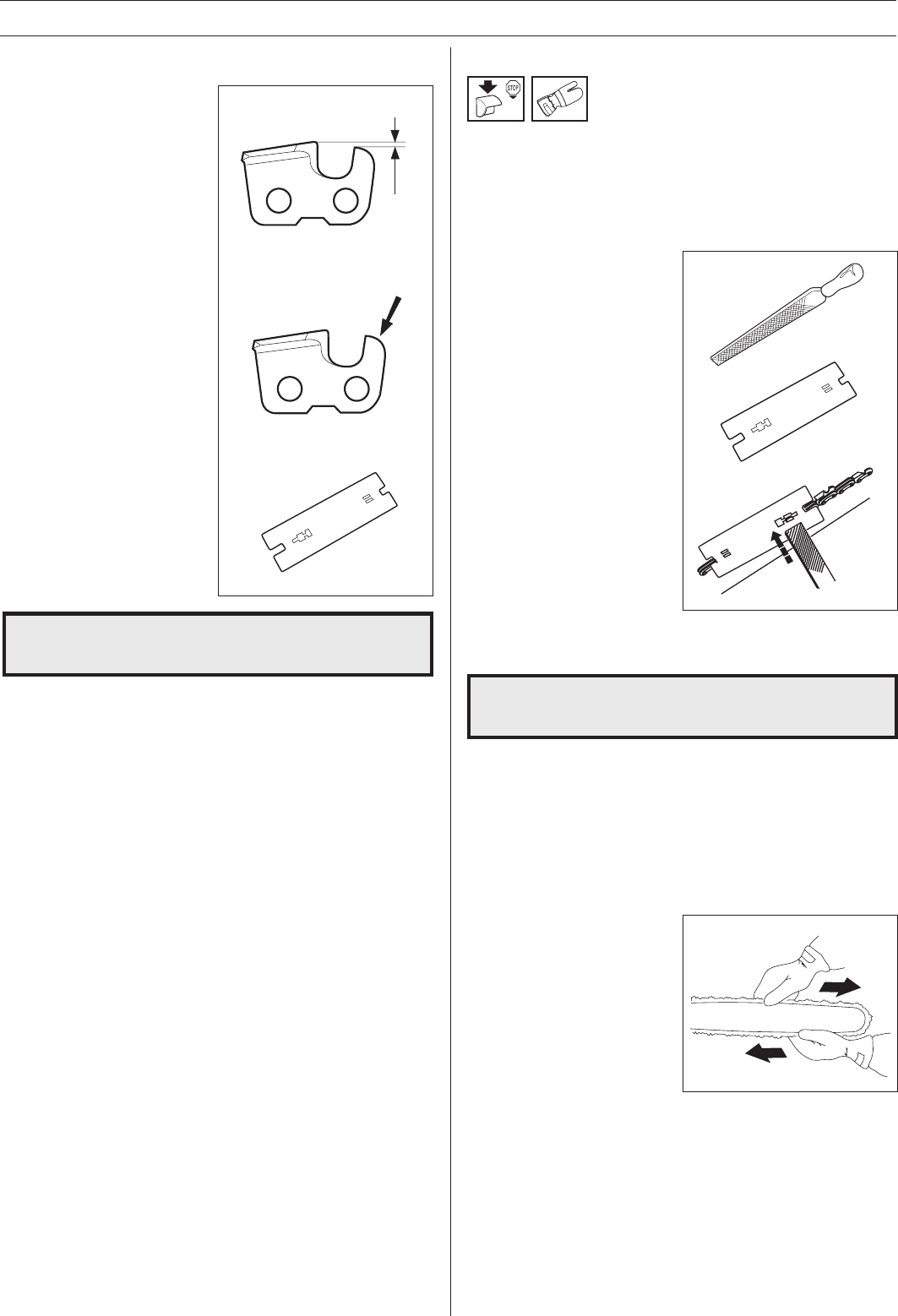
English – 13
!
C General advice on setting raker clearance
• When you sharpen the
cutting teeth you reduce the
RAKER CLEARANCE
(cutting depth). To maintain
cutting performance you
must file back the raker
teeth to the recommended
height.
See the
”Technical data”
section to find the raker
clearance for your saw
chain.
• On a low-kickback cutting
link the front edge of the
raker lip is rounded. It is
very important that you
maintain this radius or bevel
when you adjust the raker
clearance.
• We recommend the use of a
raker gauge to achieve the
correct clearance and bevel
on the raker lip.
The risk of kickback is increased if the raker
clearance is too large!
SAFETY INSTRUCTIONS
D Setting the raker clearance
• Before setting the raker clearance the cutting teeth should be
newly sharpened.
We recommend that you adjust the raker clearance every
third time you sharpen the chain. NOTE! This
recommendation assumes that the length of the cutting teeth
is not reduced excessively.
• To adjust the raker
clearance you will need a
FLAT FILE and a RAKER
GAUGE.
• Place the gauge over the
raker lip.
• Place the file over the part
of the lip that protrudes
through the gauge and file
off the excess. The
clearance is correct when
you no longer feel any
resistance as you draw the
file over the gauge.
3 Tensioning the chain
A slack chain may jump off and cause serious
or even fatal injury.
• The more you use a chain the longer it becomes. It is
therefore important to adjust the chain regularly to take up the
slack.
• Check the chain tension every time you refuel.
NOTE! A new saw chain has a running-in period during which
you should check the tension more frequently.
• Tension the chain as tightly
as possible, but not so tight
that you cannot pull it round
freely by hand.
!


















